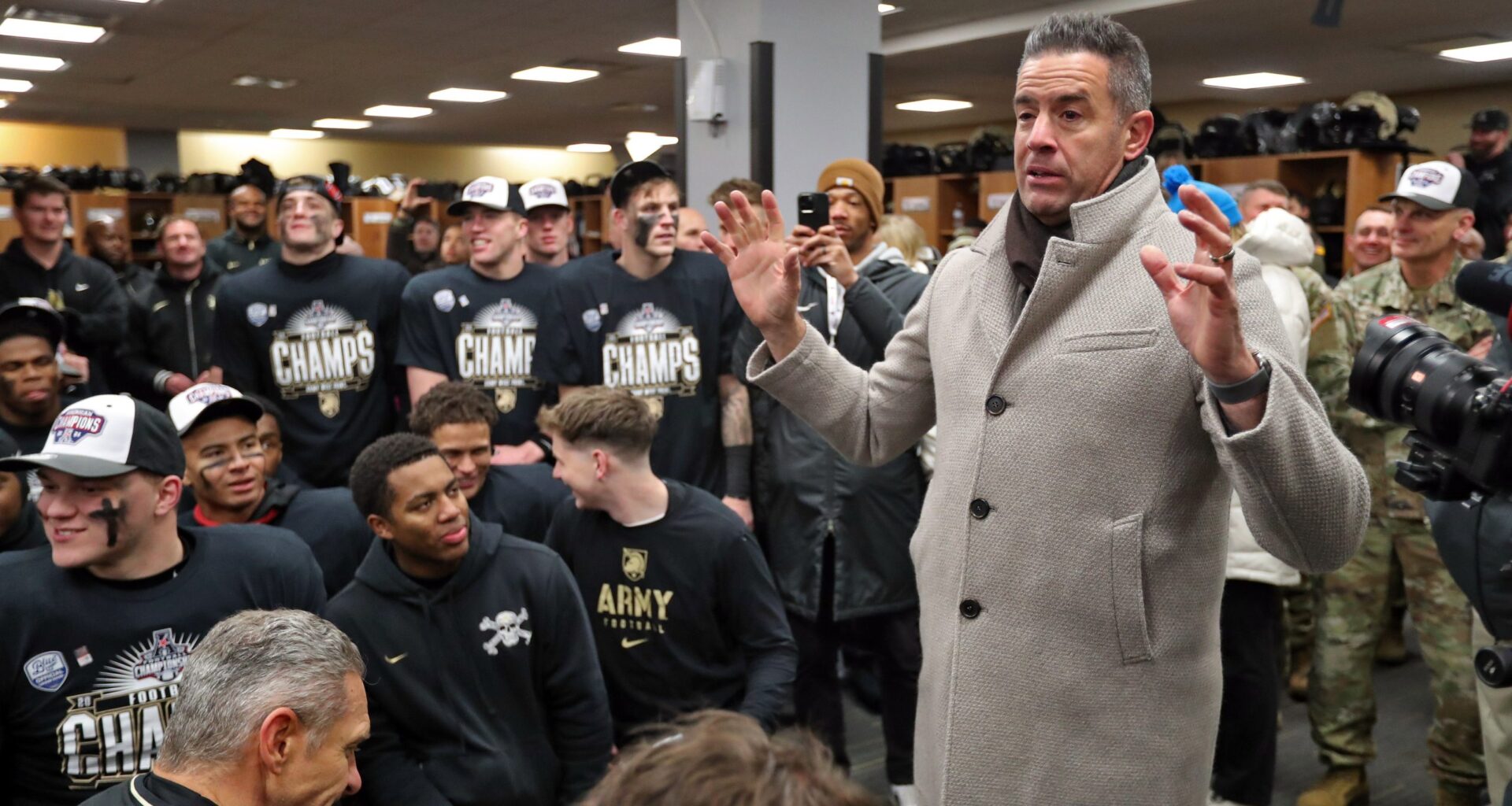The Big Ten and the SEC are continuing to race away from the pack. Not just when it comes to their performance on the field and dominance over the sport, but off the field in their influence and revenue from massive television contracts. But American conference president Tim Pernetti has a new, bold idea that could help level the playing field and give everyone a lift.
Consolidate everyone’s media rights.
Currently, the newly re-branded American conference (they dropped the “Athletic” from their name in case you were wondering) is currently in the midst of a 12-year, $1 billion deal that they signed with ESPN in 2019. Since then, the conference has been hit hard by realignment with UConn, Cincinnati, Houston, UCF, and SMU all leaving for greener pastures.
Memphis reportedly received the highest payout from the American this year at $11 million. Compare that to the Big Ten, who paid out $63 million per school, and the SEC, who dished out $53 million.
So it makes sense that the American and other Group of 5 conferences would be looking for something, anything, to help give them a revenue boost. And in Pernetti’s mind, it’s following the NFL model and pooling every conference’s rights packages together to be sold under one umbrella via Underdog Dynasty.
“The industry needs revenue, let’s add and get on offense, turning campus-wide challenges into growth opportunities,” Pernetti said. “No single conference or private capital firm can match the upside of collective action. A common-sense solution is to unify media rights across FBS, like the pro leagues, we can dramatically increase total revenue and create a financially sustainable model.”
Pernetti argues that unifying a media rights deal benefits all FBS institutions, lifting the revenue of smallest earners while still compensating the highest earners for their contributions.
“The pie can be so much bigger for all our institutions,” Pernetti said. “In the American, we’re not trying to eat off any other conference’s plate. We believe that the autonomy four (referring to the ACC, Big 12, Big Ten, and SEC) deserve more revenue given the value they bring in television viewership, attendance, sponsorship and more. But I’ve seen the potential upside of consolidation. I’ve seen the numbers, they are backed by data. Revenues can triple.”
While that sounds great in theory, there are many obstacles to overcome.
First, the Big Ten just inked a new long-term contract with Fox, NBC, and CBS through 2029-2030 that pays $1.1 billion per year. The lucrative SEC contract with ESPN runs even longer until the 2033-234 season at $3 billion over 10 years. Just getting to the point where every major conference could align their media deals to expire would be a kind of collaboration in college athletics we have never seen before. Of course, you could also get all the conferences and all the television networks on board to do something sooner, but that would be as improbable as moving Mount Everest into the sea.
And even if it all does come together somehow against all odds… this is college football we are talking about. The group that is supposed to govern this thing, the NCAA, has been asleep at the wheel for decades.
For Pernetti and the American Conference, it’s all about survival at this point. We’ve seen what happened to the O.G. Pac-12 and how the resurrected version pales in comparison. We have seen the Group of 5 get pushed more and more to the side. And we have now seen the Big Ten and the SEC establish a duopoly where they basically control the fate of college football moving forward.
Asking them to give up that power, influence, and revenue for the good of the whole would be what’s best for the sport in the short-term and the long haul, but the list of people throughout human history who have given up that kind of standing are few and far between. But maybe there is one way in which they would. As Montgomery Burns once said, “I’d trade it all for a little more.”
